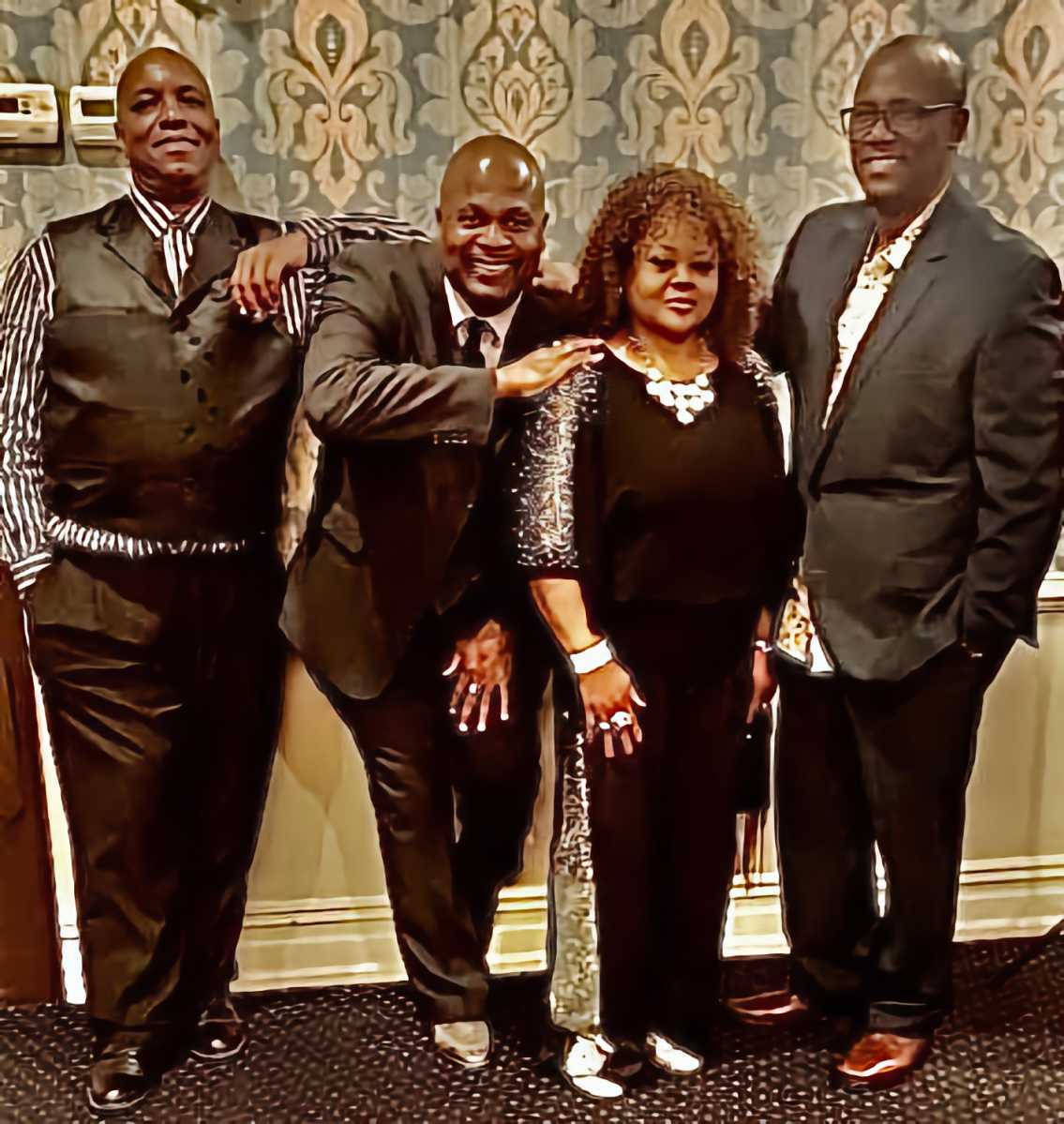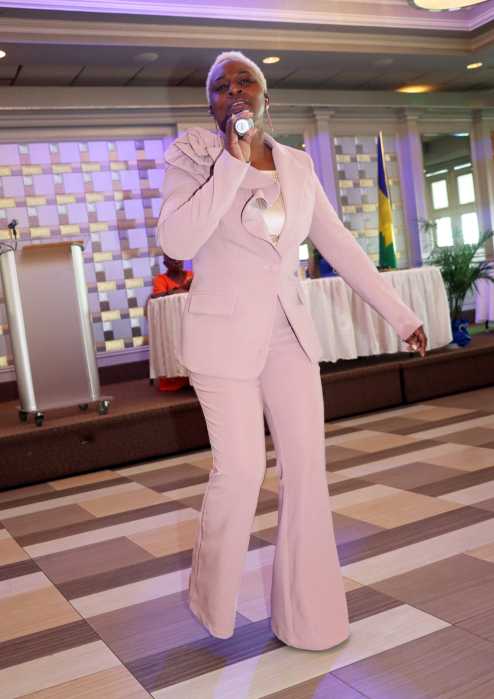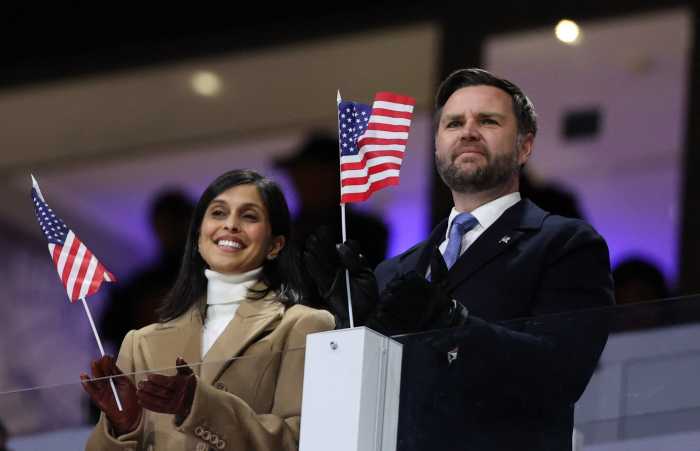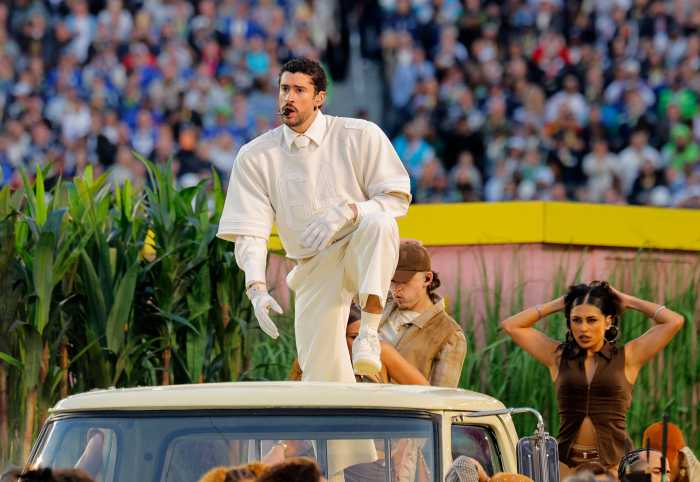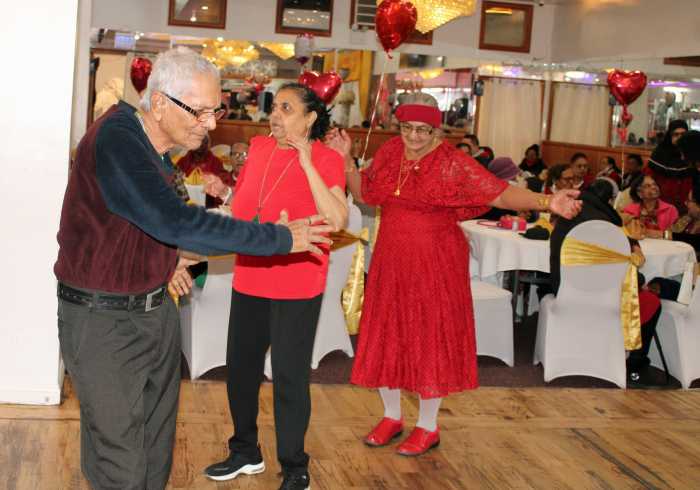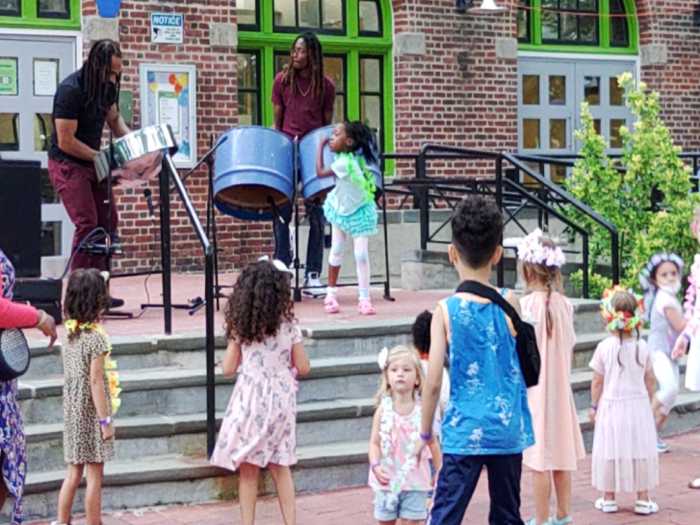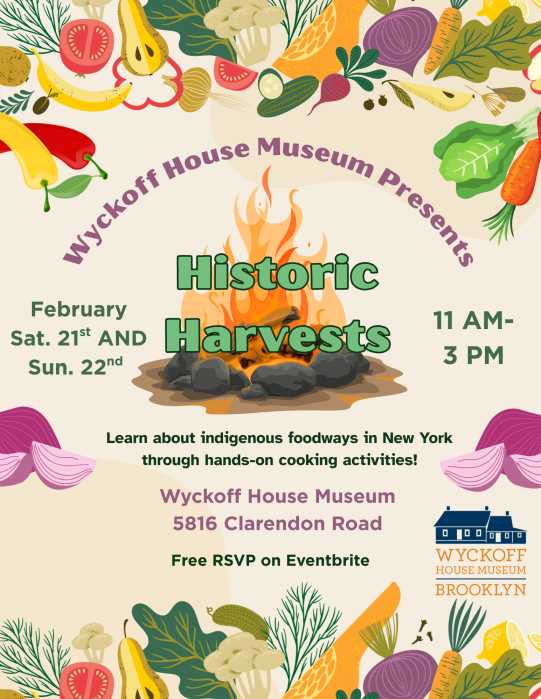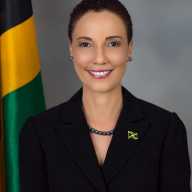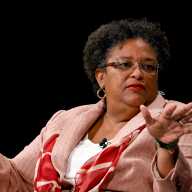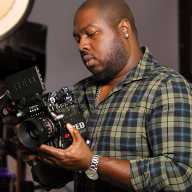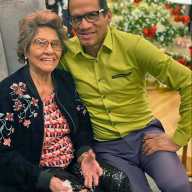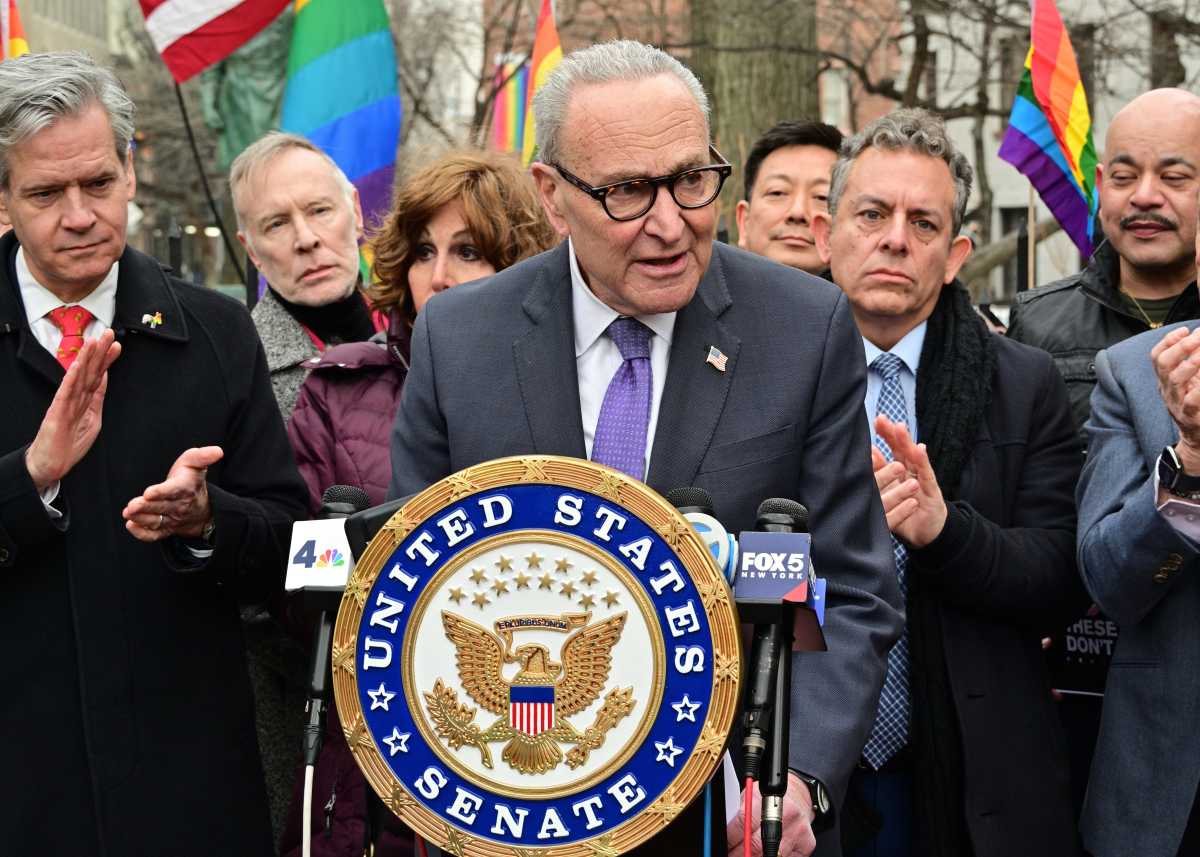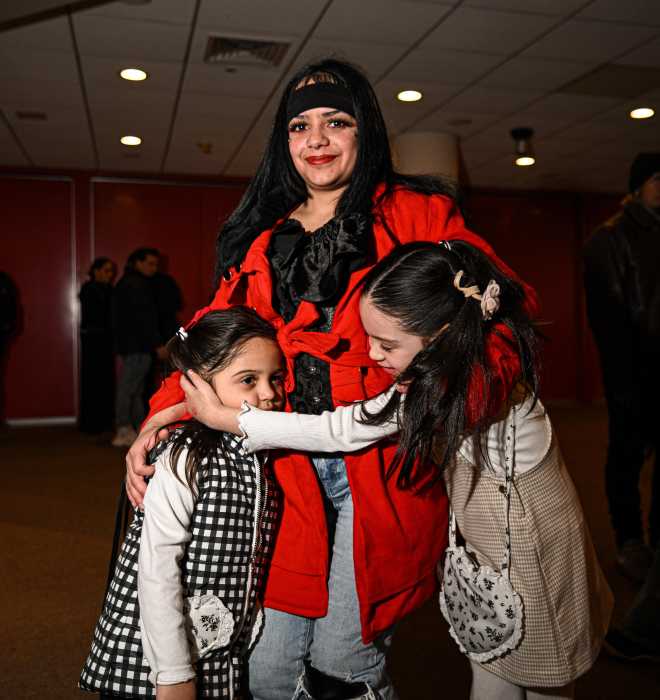As it prepares to celebrate its 30th anniversary in April next year, the Brooklyn-based Caribbean musical band, Tribal Legacy, continues to blaze a trail of rhythms and energy.
“Prepare to embark on a sonic journey with Tribal Legacy, a visionary musical ensemble renowned for crafting an electrifying party music experience that transcends genres and captivates hearts,” Owen “Dyno” Romeo, the Guyanese-born leader, co-founder and keyboardist, told Caribbean Life on Monday.
“With an unmatched fusion of reggae and soca interwoven seamlessly with funk, hip hop, and rock rhythms, Tribal Legacy has redefined the boundaries of musical expression, fashioning a sound uniquely their own,” added Romeo, who also provides background vocals, and is also a songwriter, producer and drum programmer.
Other members of the four-member band are: Trinidadian Richard “Ricton” Burton, lead singer, songwriter and sound engineer; Trinidadian Charmaine “Lady Charms” John, lead singer and songwriter; and Guyanese Wayne Thompson, bass guitarist.
“At the heart of Tribal Legacy’s artistic tapestry lies their ability to infuse every performance with an irresistible energy that leaves audiences spellbound,” Romeo said. “Heads bob, fingers snap, and feet dance to the irresistible beats, creating an atmosphere that is impossible to resist.”
He said the band’s live shows are “a vibrant celebration of cultural diversity and creative collaboration, inviting everyone to be part of an unforgettable musical voyage.”
Romeo said he and Tony George, a Trinidadian singer, founded Tribal Legacy in Brooklyn in April 1994.
“After 9/11 happened, Tony moved to Florida with his family,” he said, adding that the band has undergone “a few line-up changes since its formation but never lost its edge nor desire to ensure that audiences have a good time.”
Over the years, Romeo said Tribal Legacy has performed “consistently” in the Tri-State area at various clubs, bars/restaurants, Caribbean shows and private parties.
“We are a weekly staple at Henrica’s, a Jamaican bar/restaurant in Queens, and part of a roster of monthly performers at Topaze Bar/Restaurant in Brooklyn,” he said.
For the past 20 years, Romeo said Tribal Legacy has performed for the Town of Hempstead Parks Summer Music Concerts and performs annually, for the past 15 years, for State Sen. Kevin Parker’s Fall Gala.
In addition, for the last three years, Romeo said the band has appeared at Taste of the Caribbean & Jerk Festival in Hartford, CT, where, this year, it backed the legendary Trinidadian Soca Star, Crazy.
“He was impressed and amazed at the band’s superb performance of his music, with no rehearsal, and could not stop raving about the band’s professionalism and sound,” said Romeo, adding that Tribal Legacy’s influence has reached “far and wide, resonating across prestigious platforms and renowned events.”
He said the band’s sensational debut, at the inaugural Welcome Back to Brooklyn festival in August 1994, left an “indelible mark, setting the stage for a meteoric rise.”
Notably, Romeo said the band is “a fixture at esteemed gatherings,” like the One World Annual Music Festival in the summer of 1996-2000 in New York City, where its performances resonated with an international audience seeking “the magic of unity through music.”
He said Tribal Legacy’s commitment to breaking barriers and pushing boundaries is further evident through its participation in iconic events.
“From the bustling streets of Philly’s White Dog Cafe’s ‘Rum ‘n’ Reggae’ festival to the heart of Manhattan’s Grand Central Partnership’s Lunchtime Music Series, Tribal Legacy’s enchanting melodies have graced the most prestigious stages, captivating discerning listeners,” Romeo said.
Venturing beyond traditional venues, he said Tribal Legacy’s dynamism echoed through the MetLife Building during New Year’s celebrations of 1998 and reverberated within the hallowed halls of Madison Square Garden during the Pro Beach Volleyball Tour world championships in 1996.
He said the band’s music “transcends time zones, cultures, and genres, embodying the essence of global connectivity and shared experiences.
“With an ever-evolving artistic vision, Tribal Legacy remains in a constant state of innovation,” said Romeo, stating that, presently, the band is crafting fresh reggae and soca compositions “that promise to challenge perceptions and elevate their sonic signature.
“These forthcoming creations are poised to reaffirm Tribal Legacy’s status as musical pioneers, boldly traversing uncharted territories of sound,” he continued. “Tribal Legacy isn’t just a band; they are a phenomenon.
“A testament to the power of music to transcend boundaries and ignite collective joy, they stand as a beacon of inspiration in an ever-evolving musical landscape,” he said. “Immerse yourself in the enchanting world of Tribal Legacy and witness firsthand the transformational energy of their unparalleled sound.”
Romeo said though the band’s core membership is four, other musicians are on standby “if a gig’s budget supports a bigger band.”
He said that changes in the music industry require a band that is “flexible” in size but is still able to sound like “10 pcs.”
Tribal Legacy released its first album, “AWOH,” in 2000. It consisted of a few Bob Marley covers, done in a reggae/hiphop/rock style that “went over well with our summer audiences in Long Island and the New Jersey shore,” Romeo said.
During the pandemic, he said the band released two singles. “8:46 (I Can’t Breathe)”, a reggae track, written by Romeo and Burton, and dealt with the George Floyd murder.
“By Mehself,” a soca track, also written by Romeo and Burton, celebrates being able to party with “me, myself and I” because of the lockdown, Romeo said.
He said Tribal Legacy will be releasing more reggae and soca music in 2024.
“Because of the state of the world, we are determined to release music that not only makes our listeners think but keeps their feet moving, as well as helping them to feel good,” Romeo said.


